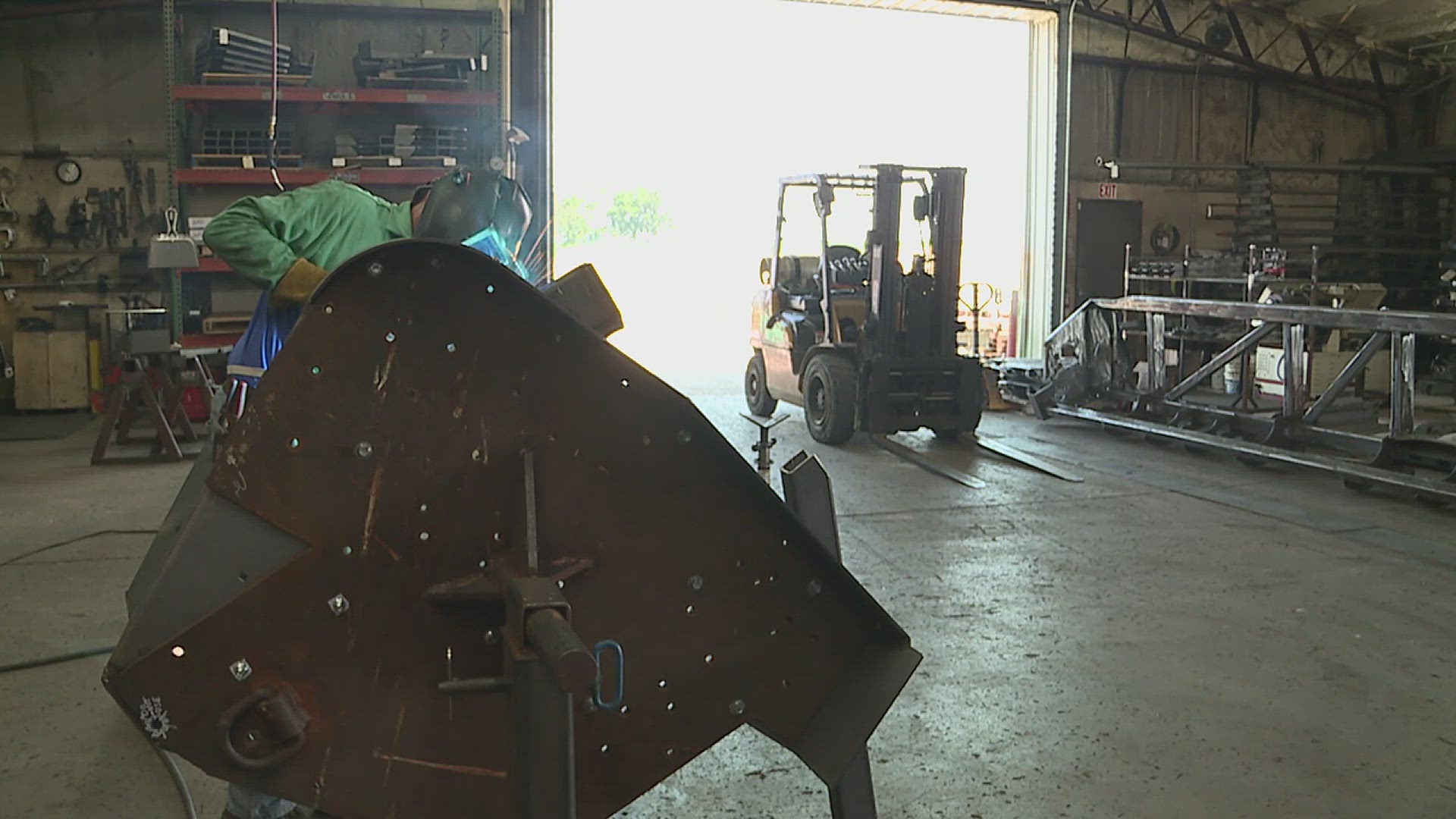LYNN CENTER, Ill. — Agriculture manufacturing businesses are paying attention to the sluggish farm economy.
John Deere confirmed Wednesday another 345 employees are being laid off from Waterloo Operations effective Sept. 20. Seven Coffeyville Works employees in Kansas are also being laid off effective Aug. 9.
This most recent announcement follows the news that more than 600 Deere employees will be laid off at the end of August in East Moline, Davenport and Dubuque.
On June 5, Deere confirmed that more than 120 employees at its Seeding and Cylinder operations in Moline would be placed on indefinite leave effective June 28. In May, around 200 John Deere Waterloo Works production employees were informed that they were being laid off after 308 workers were laid off in late April at the same location.
John Deere also announced layoffs for 150 employees at its Ankeny plant in March. More than 200 production employees were laid off at Harvester Works in East Moline in October 2023.
"Agriculture is one of those industries that's very cyclical, and we have great times and we have bad times," Marion Calmer, the owner of Calmer Corn Heads said. "I think we're just at the beginning of this downturn in agriculture."
Calmer Corn Heads manufacturers specialty harvest equipment in Henry County, Illinois.
"Sales are off a little bit," Calmer said. "But last year we had a tremendous year, and so when you average it out, we're still having a steady increase over time. We've kind of gotten used to the cycles when grain prices are good, the farm economy is good, we see large sales, but we're still going to do fine."
The business makes both new equipment and replacement parts for farmers. Calmer noted that sales were slower at the beginning of this year, but is seeing more orders come in as harvest season gets closer.
As a farmer himself, he understands the factors farmers are weighing when deciding what to buy.
"We're seeing some of the lowest commodity prices that we've had in many years," Calmer said. "And the downturn here just over the last couple of weeks has been pretty severe."
In February, the USDA forecast net farm income will fall by $43.1 billion, about a 27% drop. At its peak in June 2022, USDA records show corn selling at $7.38 a bushel. In May 2024, it was $4.51 a bushel. That same month in 2022, soybeans were selling at $16.40 a bushel. In May 2024, it dropped to $11.90.
"We're getting into that break even zone now, but we can still make up for it with yield as well," he said. "But prices are something that we have to deal with all the time, and you live to enjoy the good times, save a little back and then be ready to go through the tough times."
He is expecting strong yields this year for his crops and in the QCA after a few weeks of good weather. However, not all farmers across the country are faring as well.
"Certain areas of the country are going to have a nice crop, and so they're going to be able to afford to put on replacement parts," Calmer said. "And then there's other areas from the Corn Belt that are suffering from a drought, and so those folks are not going to be interested in buying much."
With low commodity prices and high input costs and interest rates, he's seeing farmers lean toward replacement parts.
"We're definitely seeing the shift away from the high, big ticket items," he said. "More people just saying, 'You know what, I'm going to buy some repair parts and I'm going to run her one more season.'"
While Deere is forecasting a $3 billion lower profit this year, Calmer said it's too early for him to predict his final numbers.
As a farmer and businessman, Calmer's learned to be optimistic and adapt. He expects the agricultural downturn to last another year, but he's not laying any of his few dozen employees off. In fact, he said he could actually hire a few more for future projects, one of which is expanding its factory building.
"I started farming in the last '70s and so I went through the '80s, and not only were the economics pretty tough in the '80s, but then we got nailed with the drought in 1988 and I feel fortunate and blessed to have survived those years as a farmer," he said. "My thoughts, though, are toward the future, and it's, 'What can I do today to anticipate what's going to happen in the future?'"
Watch more news, weather and sports on News 8's YouTube channel

